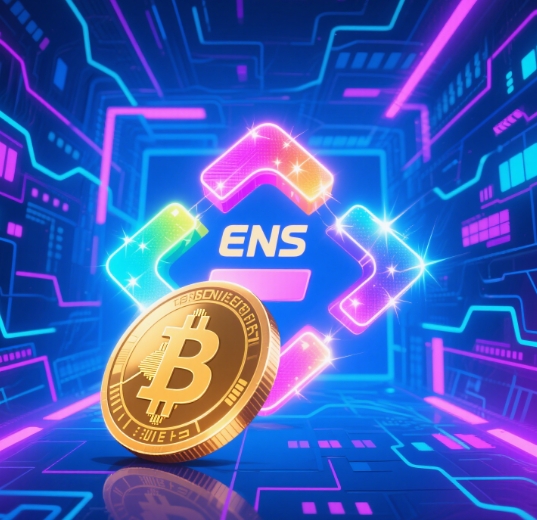What Is the ENS Token?
The ENS token is the native governance token of the Ethereum Name Service (ENS) — a decentralized, open-source protocol built on the Ethereum blockchain that maps human-readable names like alice.eth to machine-readable identifiers such as Ethereum addresses, content hashes, and metadata. ENS bridges the usability gap in Web3 by allowing users to replace long cryptographic addresses with simple, memorable names.
Launched in November 2021, the ENS token enables community-driven decision-making, allowing holders to vote on protocol upgrades, budget allocation, and core development. ENS is more than just a naming service — it's a foundational layer for digital identity in the decentralized web.
The Role of ENS in the Web3 Ecosystem
As blockchain adoption grows, the need for user-friendly interaction becomes critical. ENS provides an elegant solution to one of the most complex problems in crypto — wallet usability. Instead of typing or copying a 42-character Ethereum address, users can send ETH, NFTs, or tokens to yourname.eth.
ENS integrates with major wallets, dApps, and exchanges, making it a vital component of the Web3 stack. It supports reverse resolution, which means you can also associate your Ethereum address with an ENS name, allowing dApps to display your name instead of a random address.
Beyond payments, ENS domains are being used as universal Web3 usernames. They can serve as your on-chain identity across DAOs, NFT marketplaces, and DeFi platforms — a feature that sets ENS apart from traditional DNS systems.
How ENS Token Works: Governance and Utility
The ENS token is primarily a governance token, giving holders the right to participate in the ENS DAO (Decentralized Autonomous Organization). Token holders can propose and vote on changes to the protocol, including:
Adjustments to pricing models for domain registrations
Treasury allocations for development grants
Strategic decisions affecting partnerships and integrations
The ENS DAO uses a quadratic voting model to ensure fair representation and avoid whale domination. This decentralized governance ensures that ENS evolves in a way that benefits the broader community.
There is no direct staking or yield farming mechanism built into ENS, distinguishing it from typical DeFi tokens. Its value proposition is tied more to its governance influence and the utility of the ENS protocol itself, rather than tokenomics-based incentives.

ENS Tokenomics and Market Performance
The total supply of ENS is 100 million tokens, with allocations as follows:
25% airdropped to .eth domain holders
50% reserved for the DAO treasury
25% allocated to contributors and core team
Since its launch, ENS has seen price volatility similar to other governance tokens but has managed to build a strong reputation due to its real-world utility and active community. ENS is traded on major exchanges like Coinbase, Binance, and Uniswap, offering liquidity and accessibility to global investors.
While its market cap is modest compared to top cryptocurrencies, ENS is seen as a long-term infrastructure play — akin to owning a stake in the domain registry of Web3.
Challenges and Future Outlook
Despite its success, ENS faces some challenges:
Competition: Other decentralized naming services like Unstoppable Domains offer similar features with different technical tradeoffs.
Scalability: With Ethereum gas fees remaining high, registering or updating ENS names can be expensive during peak network activity.
Adoption: Mass adoption of ENS as a digital identity layer depends on user education and broader Web3 integration.
However, the protocol continues to innovate. Upcoming features include support for Layer 2 solutions, multi-chain naming, and improved ENS name resolution APIs. As Web3 moves toward mainstream adoption, the ENS token is well-positioned to capture value from the shift toward decentralized identity and user-centric naming protocols.
Conclusion: Why ENS Token Matters in the Web3 Revolution
The ENS token is more than just a speculative asset — it's the governance key to one of the most important infrastructure projects in crypto. As digital identity and decentralization gain traction, owning ENS is like owning a piece of the Web3 internet.
Whether you're a developer, investor, or enthusiast, understanding the ENS ecosystem is essential to navigating the next wave of blockchain innovation.
Explore the Future of Web3 Identity with Hibt
At Hibt, we bring you in-depth analysis, token insights, and real-time coverage of the most promising projects in the crypto space. Stay informed about key developments like ENS and discover how they shape the decentralized world. Follow Hibt for everything blockchain — from protocols to price trends.